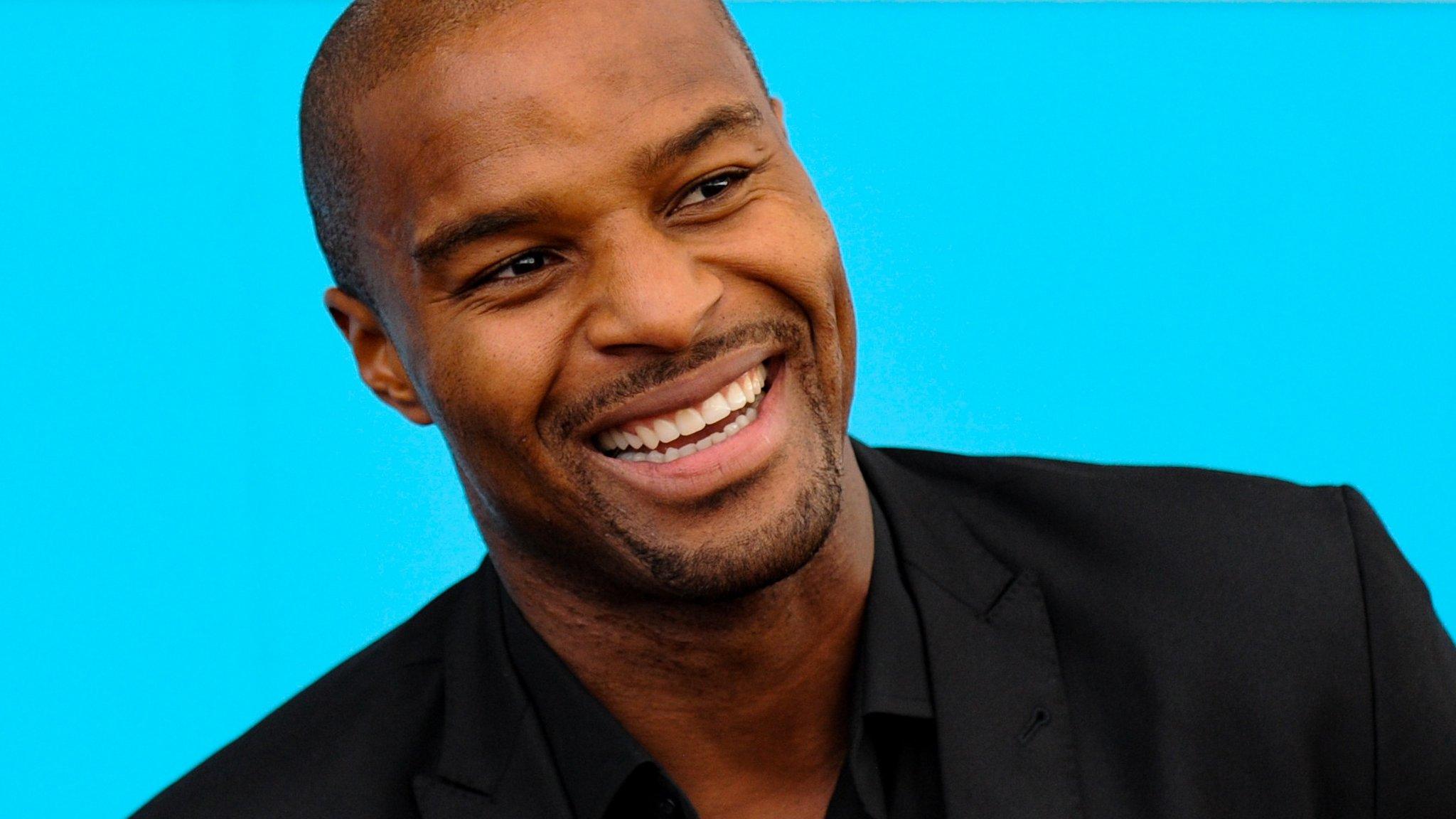Mourinho, Guardiola, Van Gaal: When post-match interviews go wrong
- Published
Mourinho walks out of interview
When Jose Mourinho walked out of his BBC interview after Wednesday's 0-0 draw with Hull, it was the latest example of a Premier League manager taking exception to a reporter's questions.
So what is it like to be the person behind the microphone when an interview goes wrong? We asked reporters from Match of the Day, BBC Radio 5 live and BBC Scotland to share their most excruciating experiences.
'Becoming part of the story wasn't a comfortable experience'
Watch Guardiola's awkward post-match interview
On 2 January, 2017, Final Score reporter Damian Johnson stepped in at the last minute to interview Manchester City manager Pep Guardiola, whose side had beaten Burnley 2-1 despite the sending off of Fernandinho. It was to become arguably the most talked-about interview of the season, and Johnson's approach and Guardiola's manner were to become the main point of discussion on that evening's 6-0-6 phone-in.
DJ: Pep, you won it, you won it the hard way...
PG: Yes, that's true.
DJ: What's your verdict on the performance? You showed real spirit after going down to 10 men...
PG: Yes, that's true. We won against a lot of circumstances in a tough game so we're happy for that.
DJ: The sending-off. What was your view of the red card for Fernandinho?
PG: You're the journalist, not me.
DJ: You're the manager. I'm sure the fans would like to know...
PG: Ask the referee, not me.
And so it continued.
Johnson explains: I was there for Final Score and don't routinely do the Match of the Day interview, but the commentator that day, Steve Wilson, was held up so I ended up doing it.
It had been a lively game but I thought the interview would be straightforward. However, it quickly became evident that Pep wasn't going to answer any of my questions. That's his prerogative. He was the same with Sky's reporter, as well as the radio guys and in the press conference.
I listened to what people were saying about it on the way home and the whole thing came as a shock. I was being discussed as well as Pep, and becoming part of the story wasn't a comfortable experience at all. As a reporter, I operate in the shadows. Most football fans wouldn't know who I am and I like it that way.
The interview polarised opinion. Some people thought my questioning was fair, while others thought I was antagonising him. I still think they were pretty bog-standard questions.
The strange thing was that when my interview finished Pep tapped me on the arm and told me it was nothing personal. I didn't really know what to make of that.
Funnily enough, as I left the ground, I was actually worried there might not be enough material from the interview for the Match of the Day team to use when producing the show. As it happened, that lack of material became the story.
'I didn't think it was a big deal'
Van Gaal gives prickly post-match interview
In April 2016, Manchester United lost 1-0 at Stamford Bridge, a result which moved Chelsea to within two victories of winning the Premier League and effectively ending any lingering hopes Red Devils boss Louis van Gaal had of lifting the trophy. The Dutchman's post-match exchange with Match of the Day commentator Guy Mowbray made for awkward viewing.
GM: Are you frustrated by what you've seen?
LVG: I'm not frustrated, I'm very proud of my team. Why do I have to be frustrated?
GM: Just at losing the game...
LVG: We played our best match of the season
GM: Is that how highly you rate the performance?
LVG: Yeah. You don't?
GM: No, I'm just interested in how you see it.
LVG: That's good that you are interested.
Mowbray explains: With Louis van Gaal, I knew he'd be frustrated at seeing his side dominate yet fail to win - effectively surrendering any last title hopes - but that can't affect how you ask the questions.
I didn't actually think it was a big deal until there was a reaction later in the evening. I remember the cameraman raising eyebrows as Van Gaal walked away but my response to that was along the lines of "I've had worse".
Nothing will top the lower-league manager who told me to go forth and multiply after I'd waited almost an hour for his emergence from the dressing room when I was only just starting out. He was a very prestigious name in the game too!
When I get a prickly response it doesn't affect me now as much as it used to, but it's still not something to be enjoyed and can ruin a weekend.
As commentators we have to strike a difficult balance between the questioning and maintaining a healthy relationship with managers and clubs that we deal with regularly - and when you've just rushed down from commentating on a game for 90 minutes and your mind's in a whirl trying to piece together what you've just watched, it can be very challenging.
While understanding the pressures and emotions with every manager - particularly so soon after full time - I just wish some would realise that we NEVER question with the intention of being disrespectful or getting them into trouble. Occasionally we may ask something that they might think is dumb, but anyone who has been around long enough knows when they have done that and to take the response on the chin.
'I remember being genuinely fearful'
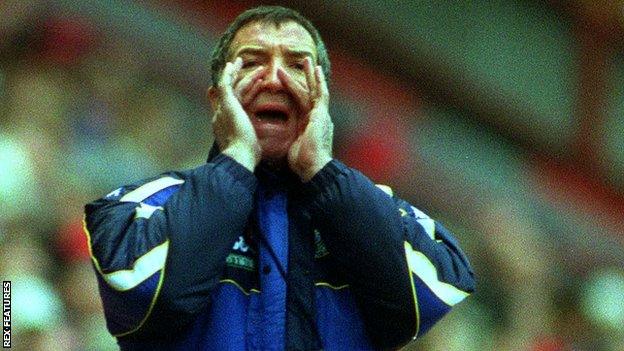
Graeme Souness won the League Cup with Blackburn in 2002
BBC Radio 5 live commentator Conor McNamara recalls an interview with Graeme Souness, when he knew that asking the crucial question would elicit a fiery response.
The first time you interview a spiky football manager in the tunnel can be a nerve-wracking experience.
First things first: the room you see on the TV - the one with the advertising boards on the wall in the background - is a tiny space. Usually no bigger than a broom cupboard. You are squeezed in with a camera person and when you are asking the questions your nose is about eight inches from the manager's nose.
Let's just say it's… cosy.
I remember being genuinely fearful interviewing a pumped-up Graeme Souness after he had been sent to the stands as Blackburn manager.
"So Graeme, um, have you any complaints?" I squirmed.
"Complaints?" he snarled. "Were you not watching? Did YOU think I should have been sent to the stands?" My blood ran cold. What do you say?
I remember when Roy Keane was manager of Sunderland - especially towards the end when the team were struggling - he would give you a "look" before the interview began. He seemed to be thinking: "Go on… ask me the controversial question. I DARE YOU." It was classic Keane, bringing a competitive element to the interview.
But as you get older and more experienced you learn to relax. A rookie interviewer feels out of place in the tunnel, but after a while it becomes your natural habitat. You realise you have as much right to be there as anyone else.
In more recent times I have interviewed Jose Mourinho and Louis van Gaal in difficult circumstances. Let's just say they clearly were not in the mood.
The key is to listen to what they do say. If they question your line of enquiry, then you have to back it up with hard facts. Not confrontational - these guys are under enormous pressure and you learn not to take it personally - but you must hold your ground.
Any sign of flippancy or weakness and they will put you away.
'After a few questions, I made reference to the Judas banner'
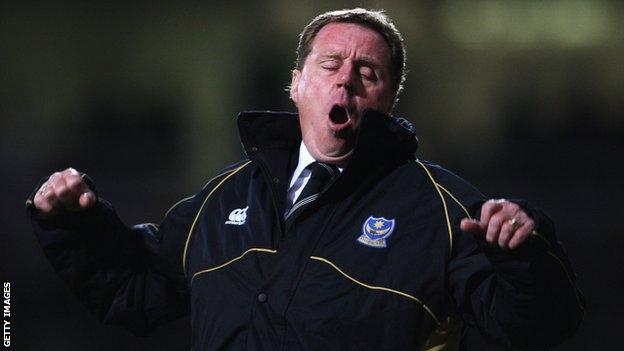
Portsmouth survived in the Premier League by four points in 2005-06 - but only after Harry Redknapp endured a difficult few months trying to turn their fortunes around
In March 2006, Harry Redknapp endured a miserable afternoon as his seemingly doomed Portsmouth side lost 1-0 at Aston Villa, Pompey's ninth straight away defeat in the Premier League. With Redknapp only three months into his second spell at Fratton Park after a period with Portsmouth's fierce rivals Southampton, his return was not universally popular. The situation left Redknapp feeling the strain, as Steve Wilson found out.
Wilson explains: First it's worth saying that football managers tend to be strong characters; you don't get to the top - and stay there - by being a shrinking violet. It's also true that the moments immediately after a game can be charged with emotion and littered with expletives.
Harry Redknapp is certainly a strong character, and one of my favourites. Towards the end of the 2005-06 season Redknapp was in his second spell as manager of Portsmouth, and looking unlikely to avoid relegation. A significant number of Pompey fans had not forgiven him for leaving to join rivals Southampton only two seasons earlier, and were still coming to terms with his return.
So Redknapp was not exactly flavour of the month with some supporters who had gone to watch them lose 1-0 at Villa Park, a result which seemed to snuff out all hope of staying up.
Some of those fans were dressed as pirates, and the cameras had picked them up several times during the game, leaving me to remark in my commentary that it was strange that they should be in fancy dress with the team in such dire straits.
The reason for the costumes became obvious on the final whistle. The Pompey pirates greeted the defeat by unfurling a banner declaring "Judas, walk the plank!"
Redknapp came into our interview area after the game looking ashen.
After a few questions on the game, I made reference to the Judas banner. His response went something like this: "That's it, ******* interview over! All you're interested in is some ******* banner!"
With that he was gone.
I didn't see him for another six weeks until Portsmouth were, incredibly, safe from relegation and Redknapp's managerial reputation had been elevated to that of miracle-worker.
I was asked to interview him for Football Focus before their last game of the season against Liverpool at Fratton Park and wondered what sort of reception I would get. Harry could not have been friendlier, not even mentioning the Villa walk-out as we chatted.
Then, as the TV lights were being adjusted, he leant forward and chuckled: "I wonder where they've stuck their banner now, eh?!"
'I wanted the ground to open up and swallow me'
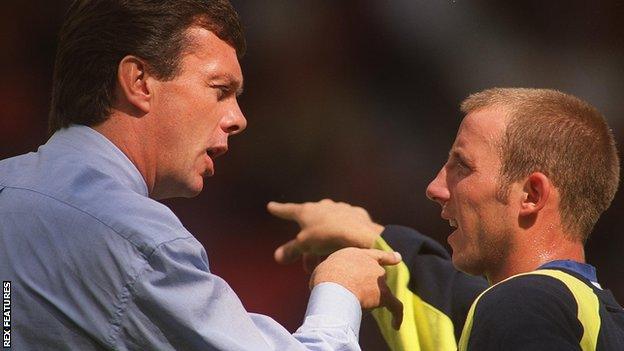
David O'Leary led Leeds to the semi-finals of the Champions League in 2001 but did not manage to win a trophy at Elland Road
BBC Radio 5 live's senior football reporter Ian Dennis recalls the time in October 1999 when, with no warning, he felt humiliated in a news conference by then-Leeds manager David O'Leary.
The one that stays with me is from my days with BBC Radio Leeds.
Dennis explains: Leeds were playing Everton at Goodison Park and they came into the match on an incredible 10-game winning run. They conceded a last-minute goal, scored by David Weir, to draw a thrilling match 4-4.
In those days the press room was at the back of Goodison Park. The manager would stand in quite a narrow press room and the journalists would gather around. I hadn't had time to make it to the tunnel area with the other radio reporters so I was the only radio journalist in the press conference.
I was right at the front so I kicked things off with a few questions - the first one would have been something like "that was a cracking game for the neutral but how was it as a manager"? And the second one was something like "you've got a draw but it must feel like a defeat…" And each one was met with a one-word answer.
He was monosyllabic, completely uninterested. After the first one I thought 'this is strange'. I went back with a second question and got another terse reply. Then I thought 'I'm in trouble here'. I started to go red. I asked a third question and again was buried. I bowed out and didn't ask more questions. He warmed up as other journalists asked their questions.
As much as what he said, it was the disdain with which he said it. I could hear other reporters in the room sniggering. It was a horrible place to find yourself - I wanted the ground to open up and swallow me.
I've been sworn at by managers before and on other occasions I've phoned managers to say I was out of order, but they've always been fine. I dealt a lot with Kenny Dalglish at Newcastle and he always accepted the tough questions - he knew you had a job to do.
Sometimes you wince when you hear a fair question and the manager decides to give an unreasonable answer. All you can do as a reporter is ask fair questions and do it in a respectful way. If you're antagonistic yourself you're asking for trouble. Respect is a two-way street.
'If we had a bad night, you're having a horrendous one'
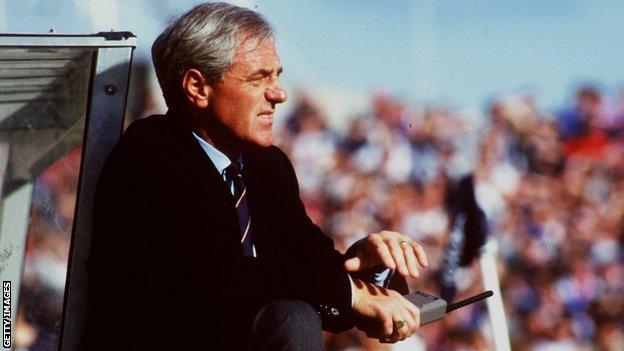
Rangers boss Walter Smith spent big in 1994, signing Brian Laudrup for £2.3m and Basile Boli for £2m
In August 1994, BBC Scotland's Chick Young was sent to interview Rangers manager Walter Smith on the morning after their 1-0 home defeat by AEK Athens in the Champions League. What followed was a volley of expletives from Smith, forming a clip which has been viewed about one million times on YouTube. It all centred on Young's suggestion that two summer signings, Basile Boli and Brian Laudrup, were under-performing.
CY: Two of the big-money signings from Europe, Boli and Laudrup, have been disappointments. Would you go along with that?
WS: I'm not answering that.
CY: What I'm saying is you've gone out and spent at the highest level. The standard of player in Europe at the top level is higher again. Are you going to have to go out and match those fees?
WS: I'm not following your line of questioning.
CY: You've got good players but these players seemingly aren't good enough in Europe?
WS: I don't know how you can say that. How can you say that? Are you saying Boli and Laudrup can't play in Europe? I'll tell you what, if we had a bad night last night, you're having a horrendous time of it now.
Young explains: Walter Smith and I were big buddies but he was particularly nippy that morning - it was very much the morning after the night before for him and Rangers.
Back in those days it was all filmed on tape, so Walter knew that while he was swearing I wouldn't be able to use any of it on TV. I kept going though until I got my 30-second clip.
The funny thing about it is that it never would have seen the light of day but for the fact I kept it and showed it at our Christmas party that year. Everyone loved it. Then, somehow it got leaked out of the building and was doing the rounds in the pubs, and eventually a few years later it ended up on YouTube where it has been watched thousands and thousands of times.
If I'd wanted to bury it, it wouldn't have existed, but I thought it was hysterical. What can you do? You just have to laugh. By the end of the interview we were both laughing.
'He lost the tie but won the interview'
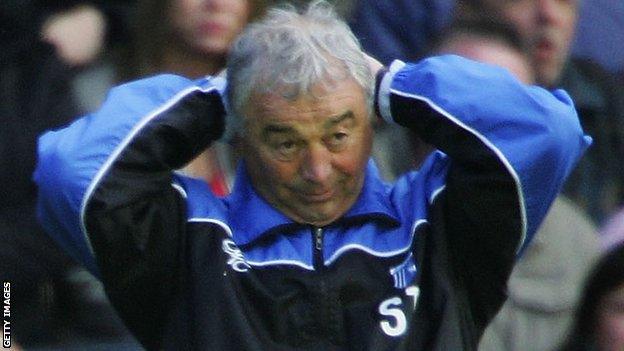
Stan Ternent left Burnley at the end of 2004 after being unable to get them into the Premier League
BBC Radio 5 live's football correspondent John Murray has conducted thousands of interviews with players and managers, but never one quite like the time he spoke to then-Burnley boss Stan Ternent after their 1-0 FA Cup loss at Millwall in February 2004.
Murray explains: Things hadn't gone terribly well for Burnley that day and they had been knocked out.
I had never met Stan Ternent before and, being aware that he had a reputation as a potentially tricky interviewee, was a little on my guard as I was waiting to speak to him after the match.
However, when I introduced myself pre-interview he was utterly charming and we had a very pleasant little chat.
No problem, I thought. Piece of cake.
But when the interview started he was monosyllabic. I was caught completely off guard by the way he had disarmed me.
And when our excruciating three-minute interview was over he gave me a little knowing smile and went on his way. He lost the FA Cup tie, but comprehensively won the interview.
Compiled by John Stanton
- Published3 February 2017
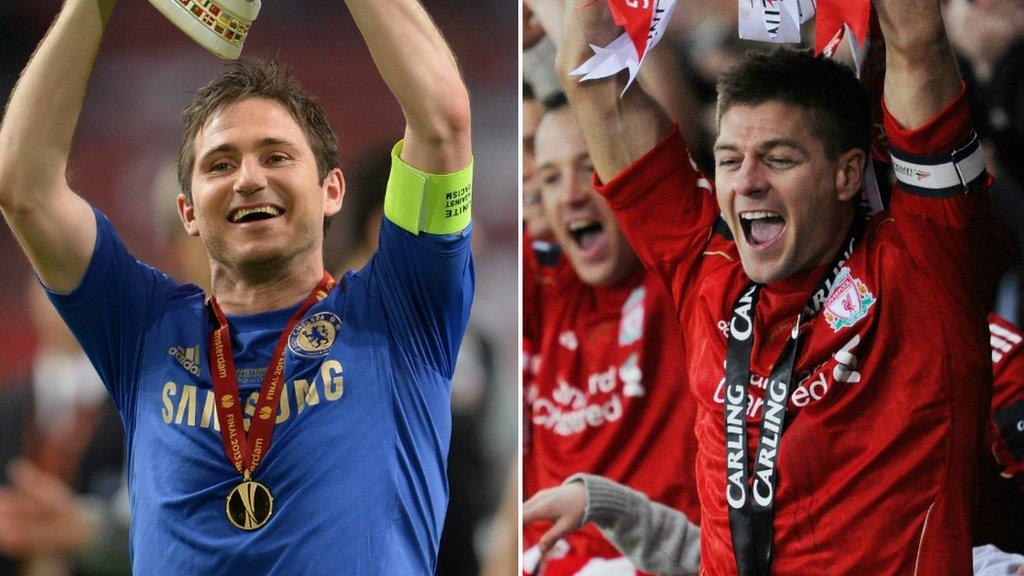
- Published3 February 2017
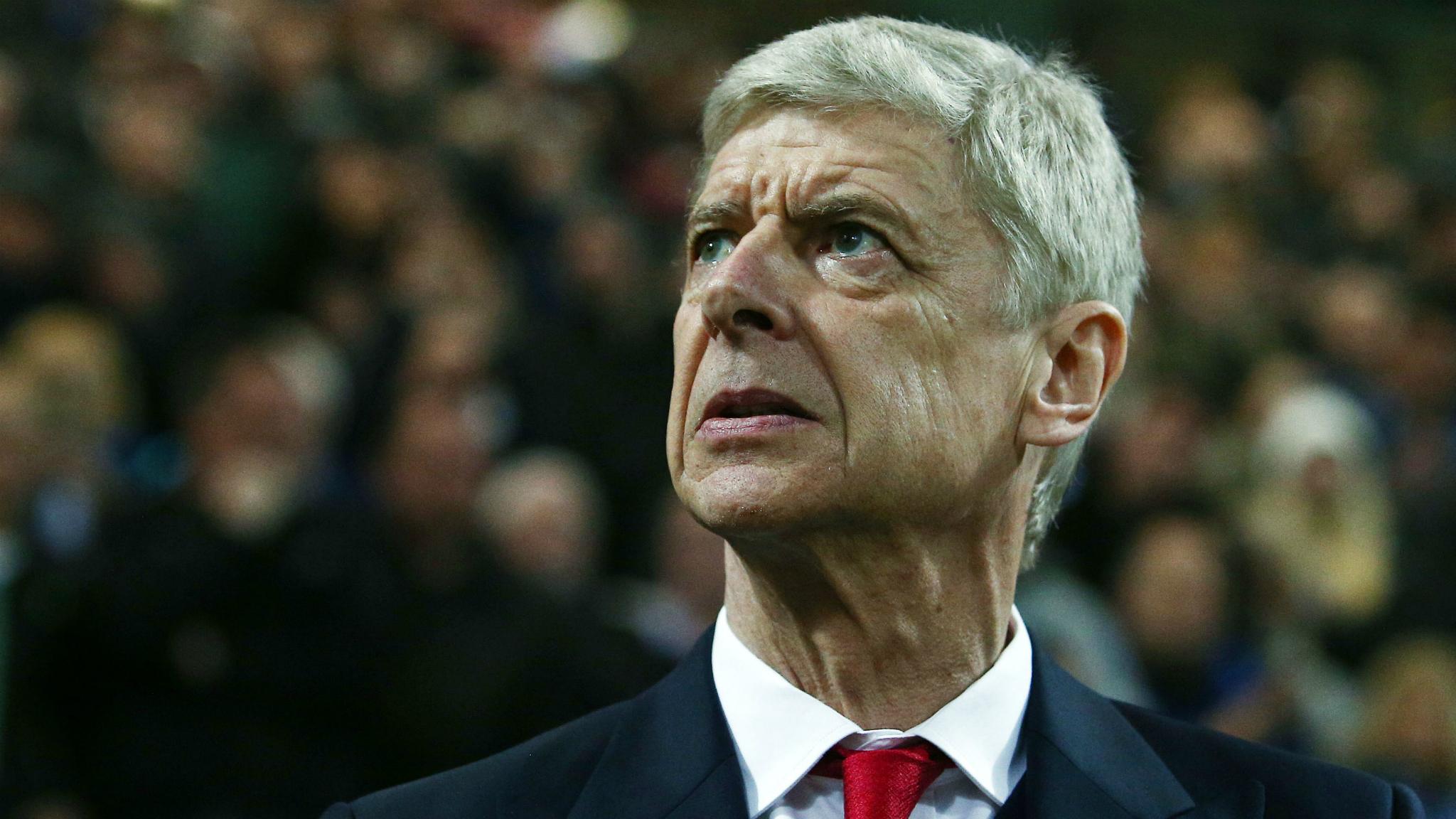
- Published2 February 2017
